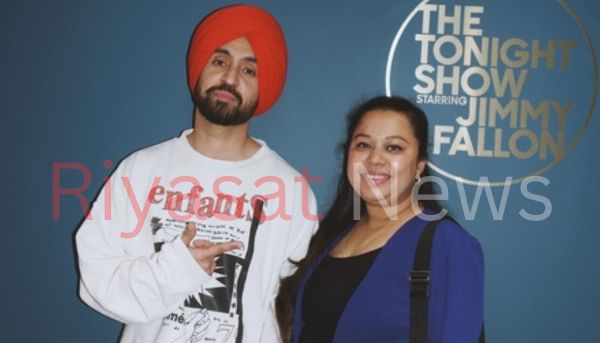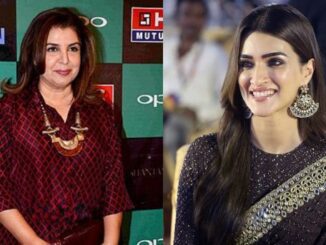
Amid the growing outrage over the inclusion of Pakistani actress Hania Aamir in the upcoming Punjabi film Sardaar Ji 3, a surprising voice has emerged in defense of actor-singer Diljit Dosanjh. The voice belongs to none other than Dosanjh’s former manager, who has stepped forward to urge calm and remind the public not to turn artists into scapegoats in the name of nationalism.
The backlash surrounding the film has grown louder by the day, with various personalities — including singer Mika Singh and certain industry associations — publicly questioning Diljit’s decision to work with a Pakistani actor at a time when tensions between the two countries remain sensitive. While Diljit himself has refrained from addressing the controversy directly, his former manager has taken a bold stance to speak on his behalf, emphasizing the importance of separating art from political sentiment.
In a heartfelt note shared with select media outlets, the ex-manager said, “We need to stop punishing our artists every time a creative decision doesn’t align with nationalistic expectations. Diljit is a true patriot — he has never disrespected India in any way. Just because he has worked with a foreign artist does not make him anti-national.”
Without naming those who have criticized Diljit, the statement seemed to respond to the outrage stirred by the collaboration with Hania Aamir. The manager pointed out that art and cinema have historically been tools of unity and dialogue, even in times of political tension. “When we slam actors for working with international artists, we’re narrowing the space for creative expression. If anything, these collaborations can become cultural bridges. Isn’t that what art is supposed to do?” the statement continued.
The former manager, who worked closely with Dosanjh during the early years of his music and film career, also highlighted the singer’s long-standing contribution to promoting Indian and Punjabi culture on global platforms. “From the Grammys to Coachella, Diljit has made India proud. He sings in Punjabi, wears turbans, and never shies away from his roots. He’s one of the few Indian celebrities representing our heritage on the world stage with dignity. Why should that be forgotten so easily?”
This defense arrives at a time when multiple voices are demanding boycotts, FIRs, and public apologies from the makers of Sardaar Ji 3. The inclusion of Hania Aamir has been labeled by some critics as “insensitive” given ongoing geopolitical concerns. However, supporters argue that films and cultural exchanges should not be held hostage to diplomacy or border tensions, especially when the film industry operates on collaborative principles.
The ex-manager also hinted that the current wave of outrage seems to be fueled more by social media sensationalism than by a genuine concern for national interest. “It’s unfortunate that anyone who attempts something bold or unconventional is immediately dragged into controversy. Instead of asking why Diljit chose to work with Hania, maybe we should be asking what kind of story they’re trying to tell together,” he wrote.
As the debate continues, the support from someone so closely linked to Diljit’s early journey in the entertainment industry adds a new layer to the unfolding drama. It also reflects the deep divide within public and professional opinion — between those who believe in protecting cultural pride and those who believe that creativity should transcend man-made boundaries.
For now, the storm around Sardaar Ji 3 shows no sign of quieting, but Diljit Dosanjh seems to be letting his work speak louder than the noise. With his ex-manager’s powerful words echoing in the background, the question remains: can art truly rise above politics, or will artists always be caught in the crossfire?



